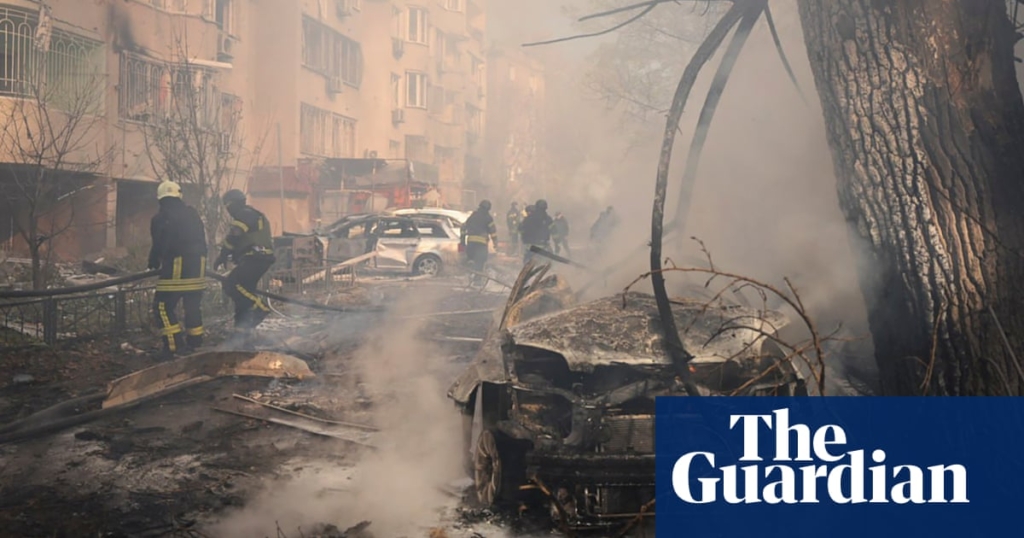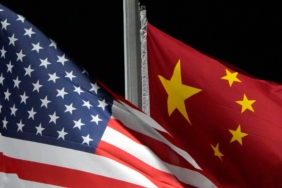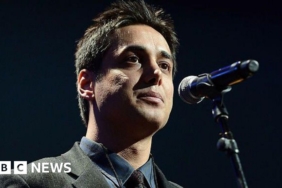Ukraine marks 1,000 days on Tuesday since Russia’s full-scale invasion, with troops battling on numerous fronts, Kyiv besieged by frequent drone and missile strikes, and officials preparing for Donald Trump to reclaim the White House in January. Thousands of Ukrainian citizens have died, more than six million live as refugees abroad and the population has fallen by a quarter since Vladimir Putin ordered the invasion that began Europe’s biggest conflict since the second world war.
A Russian missile attack killed 10 people and wounded 44 in Ukraine’s Black Sea port of Odesa on Monday, local governor Oleh Kiper and national police said. Four children were among the wounded while three people were in serious condition. National police said seven officers, a medic and two residents were killed, and 14 police officers were among the wounded. Ukraine’s president, Volodymyr Zelenskyy, said a Russian ballistic missile hit a residential neighbourhood, and an apartment building, a university building and an administrative building were damaged. “These are not random strikes – these are show strikes. After calls and meetings with Putin, after all the false gossip in the media about supposedly ‘refraining’ from strikes. Russia is showing what it is really interested in: only war,” he said.
The German tabloid Bild has reported on what it calls a “top secret” delivery to Ukraine of 4,000 strike drones, developed by the German artificial intelligence firm Helsing. The company reportedly received the contract from the Ukraine defence ministry in September and the order has been paid for out of a German government fund.
Dan Sabbagh, the Guardian’s defence and security editor, writes that Britain is expected to clear Storm Shadow missiles for use by Ukraine on targets inside Russia now that the US president, Joe Biden, has agreed to do the same for the American long-range Atacms weapon. Storm Shadow cruise missiles, fired from warplanes, have a range of about 250km (155 miles), similar to the US Atacms, which is ground-launched.
The Storm Shadow has in the past been given to Ukraine by the UK and France, which calls it Scalp, to strike targets inside Ukraine’s internationally recognised borders. The US has been able to veto their use because it supplies a guidance system. Ukraine wants to be able to strike barracks, fuel and logistics hubs, and airbases deeper inside Russia to blunt Moscow’s relentless attacks on their country. Russia, by contrast, is able to strike targets anywhere in Ukraine.
The French president, Emmanuel Macron, hailed the “totally good” US decision on Atacms. Ukraine’s foreign minister, Andriy Sybiga, said “it could be a gamechanger. The longer Ukraine can strike, the shorter the war will be … [Ukraine has the] full right to strike military targets on the territory of Russia. It could have a very positive impact on the situation on the battlefield.”
The German foreign minister, Annalena Baerbock, described Biden’s decision as “important” and “essential”. A German government spokesperson said, however, that Germany was sticking with its decision not to supply Ukraine with long-range Taurus missiles. The decision by the chancellor, Olaf Scholz, to withhold its most powerful missile has been a significant point of contention in Germany.
The international chemical weapons watchdog said on Monday that banned CS riot gas had been found in shell and soil samples from the zone where Russian forces are operating. The OPCW convention bans the use of CS gas and other toxic weapons in war zones. Ukraine accuses Russia of using it on the field of battle. Britain and the US have accused Russia of using the toxic agent chloropicrin as well as riot control agents in the invasion.
The North Korean leader, Kim Jong-un, met on Monday with Russia’s natural resources minister in Pyongyang, state media reported. A delegation from a Russian military academy also arrived in the North Korean capital, KCNA said. The US, South Korea, Ukraine and allies have accused North Korea of sending more than 10,000 soldiers to help Russia fight Ukraine. In exchange for North Korea sending troops, the west think Russia is offering technological support that could advance Kim’s nuclear weapons programme.
The Kremlin rejected a reported peace proposal from the Turkish president, Recep Tayyip Erdoğan, to be put forward at the G20 summit in Brazil, to freeze hostilities at the current positions of both parties. Erdoğan’s plan reportedly consists of: freezing the frontline as it is, Ukraine agreeing not to join Nato for at least ten years, supplying Ukraine with weapons to provide for its defence and placing international peacekeepers in a demilitarised buffer zone in the Donbas. Earlier, Kremlin spokesperson Dmitry Peskov dismissed reports that Erdoğan was suggesting a freeze of the current tactical situation as a condition that would be “unacceptable” to the Russian Federation.





Yorumlar kapalı.